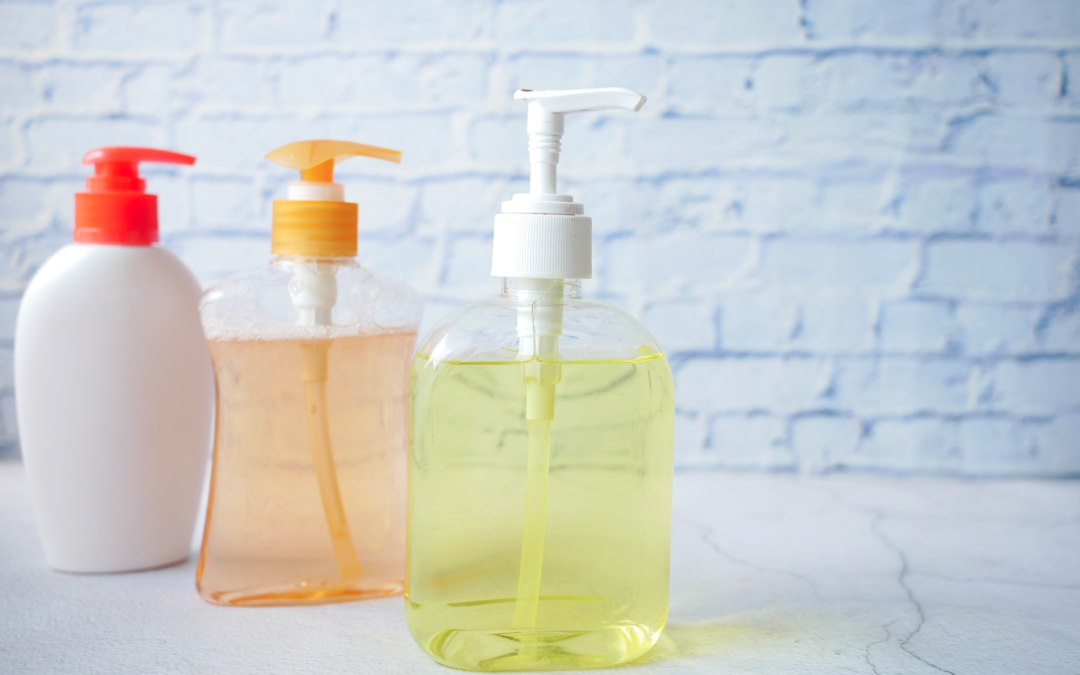Do you reach for antibacterial soap, thinking it offers superior protection against germs? You may be surprised to learn that regular soap is just as effective at keeping you and your family healthy.
Washing your hands with plain soap and water is one of the simplest and most effective ways to prevent the spread of germs—whether at home, school, or in public spaces. This practice becomes even more crucial during seasonal outbreaks of illnesses like colds, the flu, or COVID-19. Germs can spread rapidly through hand contact with the face, food, or shared surfaces, making proper hand hygiene essential.
The Power of Plain Soap
Regular hand washing with plain soap helps eliminate germs by lifting them from the skin so they can be rinsed away with water (note that soap does not actually kill any germs/bacteria). The key lies in the scrubbing and rinsing action—not in any added antibacterial chemicals. For most people, antibacterial soaps offer no additional health benefits.
In fact, the Food and Drug Administration (FDA) confirms that antibacterial soap is no more effective than plain soap and water in preventing illness. Over time, these products may even pose more risks than benefits.
The Downsides of Antibacterial Soap
Antibacterial soaps—also labeled as antimicrobial or antiseptic—contain chemicals specifically added to kill bacteria. While this might seem beneficial, health experts warn that these ingredients are unnecessary and could cause harm in the long run.
In 2016, the FDA banned common antibacterial chemicals like triclosan and triclocarban in consumer soaps. These ingredients were not proven to be safe for long-term use, nor were they more effective than plain soap in preventing illness.
There are several concerns with antibacterial soap use:
- Disrupting Natural Defenses – These soaps eliminate not only harmful bacteria but also beneficial bacteria that help protect your skin and overall health.
- Encouraging Antibiotic Resistance – Overuse of antibacterial agents can contribute to bacterial resistance, making infections harder to treat in the future.
- Harsh Chemical Exposure – Many antibacterial soaps contain strong chemicals that may pose health and environmental risks.
In contrast, plain soap and water offer a safer, gentler, and more eco-friendly way to maintain hygiene.
How to Spot Antibacterial Soaps
It’s easy to identify antibacterial soaps by checking their ingredient lists. Common antibacterial agents include:
- Benzalkonium chloride
- Benzethonium chloride
- Chloroxylenol
Another telltale sign is a “Drug Facts” label, which is required for products containing antibacterial ingredients.
Choosing the Right Soap
With so many hand soap options available, finding the best one can be overwhelming. To help you make an informed choice, look for products that prioritize health and safety.
One way to identify safer soaps is by checking for the EWG Verified® mark, which ensures a product is free from harmful chemicals and meets strict health and transparency standards. You can also browse the EWG Skin Deep® database or use the Healthy Living app to find safe and effective soaps on the go.
Here are some excellent options that prove you don’t need antibacterial ingredients to keep your hands (and body) clean and healthy:


Thank you for this. i have a clear understanding at last; how to best wash hands. R the 4 soaps you listed above easily available ? and where ?